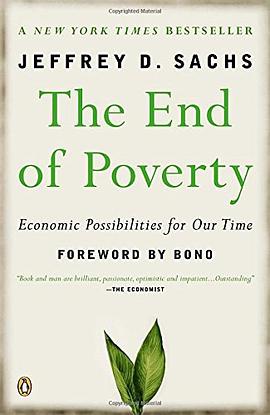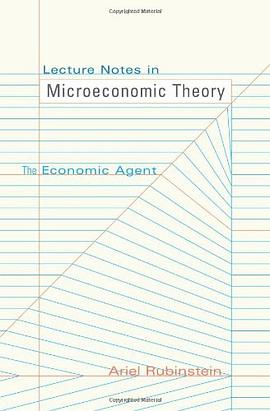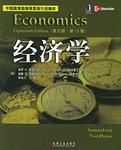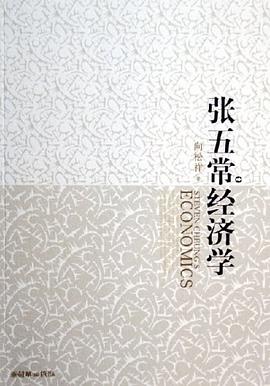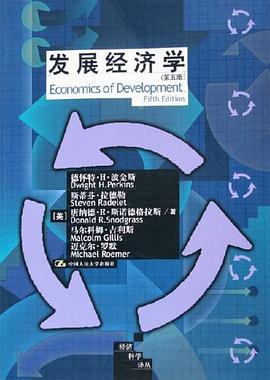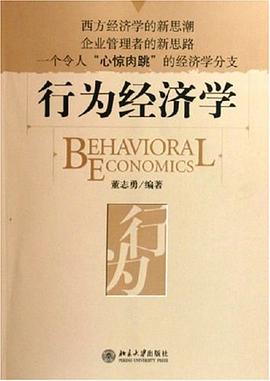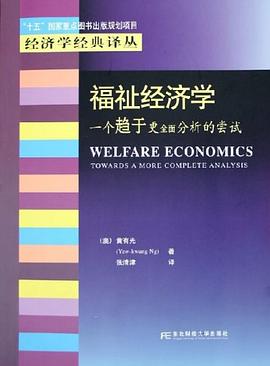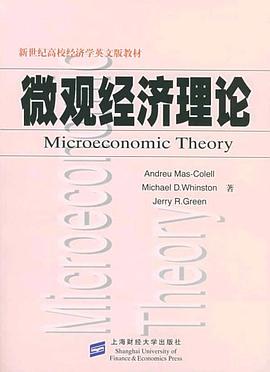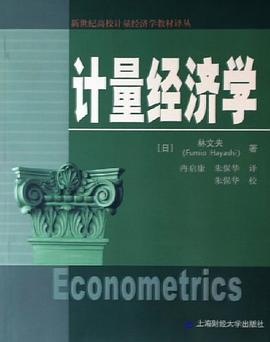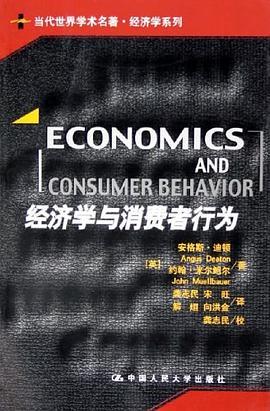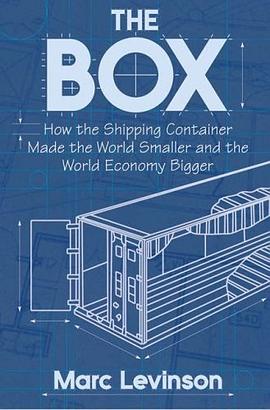

具体描述
In April 1956, a refitted oil tanker carried fifty-eight shipping containers from Newark to Houston. From that modest beginning, container shipping developed into a huge industry that made the boom in global trade possible. The Box tells the dramatic story of the container's creation, the decade of struggle before it was widely adopted, and the sweeping economic consequences of the sharp fall in transportation costs that containerization brought about.</p>
Published on the fiftieth anniversary of the first container voyage, this is the first comprehensive history of the shipping container. It recounts how the drive and imagination of an iconoclastic entrepreneur, Malcom McLean, turned containerization from an impractical idea into a massive industry that slashed the cost of transporting goods around the world.</p>
But the container didn't just happen. Its adoption required huge sums of money, both from private investors and from ports that aspired to be on the leading edge of a new technology. It required years of high-stakes bargaining with two of the titans of organized labor, Harry Bridges and Teddy Gleason, as well as delicate negotiations on standards that made it possible for almost any container to travel on any truck or train or ship. Ultimately, it took McLean's success in supplying U.S. forces in Vietnam to persuade the world of the container's potential.</p>
Drawing on previously neglected sources, economist Marc Levinson shows how the container transformed economic geography, devastating traditional ports such as New York and London and fueling the growth of previously obscure ones, such as Oakland. By making shipping so cheap that industry could locate factories far from its customers, the container paved the way for Asia to become the world's workshop and brought consumers a previously unimaginable variety of low-cost products from around the globe.</p>
作者简介
Marc Levinson is an economist and historian specializing in business and finance. He was formerly finance and economics editor of The Economist, worked as an economist at a New York bank, and served as senior fellow for international business at the Council on Foreign Relations. For more information, check out his website at www.marclevinson.net.
目录信息
读后感
预计叫《集装箱改变世界》,书翻译的不错,写的当然更不错。 敬请留意吧。 《金融时报》与高盛2006年度最佳图书入围作品 “没有集装箱,不可能有全球化。”——《经济学家》 集装箱有什么重要的地方吗? 一个冷冰冰的铝制或钢制大箱子,上面有很多的焊缝和铆钉,底部铺着木板...
评分今天我们生活在一个全球化的世界。我们身边的许多产品,都是由全世界各地飘洋过海而来。就拿iphone来说,它的设计与研发在美国总部完成,而iphone处理器是由三星在韩国制造的,屏幕则来自日本,还有许许多多小零件,像是来自法国的陀螺仪传感器,来自荷兰的NFC通讯模块。这些创...
评分今天我们生活在一个全球化的世界。我们身边的许多产品,都是由全世界各地飘洋过海而来。就拿iphone来说,它的设计与研发在美国总部完成,而iphone处理器是由三星在韩国制造的,屏幕则来自日本,还有许许多多小零件,像是来自法国的陀螺仪传感器,来自荷兰的NFC通讯模块。这些创...
评分与其用中文标题,我倒觉得直接用英文的来的好点,而且本书说的最多的就是美国港口的屈辱斗争史,任何一个新技术的应用,必然带来老的一代的退出,然后你就看着新老交集的撕咬,这在哪都有,不一定只是美国。 书还不错,可以当着标准化的书籍学习下,尤其是做平台的兄弟姐妹们,...
评分今天我们生活在一个全球化的世界。我们身边的许多产品,都是由全世界各地飘洋过海而来。就拿iphone来说,它的设计与研发在美国总部完成,而iphone处理器是由三星在韩国制造的,屏幕则来自日本,还有许许多多小零件,像是来自法国的陀螺仪传感器,来自荷兰的NFC通讯模块。这些创...
用户评价
这真是一本……我到现在都还在回味。不是说它有多么惊心动魄,或者情节多么复杂,而是那种奇妙的、挥之不去的感觉。打开这本书,仿佛进入了一个全新的维度,一个我从未想象过的空间。作者构建的世界极其细腻,每一个角落都充满了细节,仿佛你可以触摸到那些真实的纹理,听到那些细微的声响。我尤其喜欢书中对于人物内心世界的描绘,那种纠结、那种挣扎、那种不经意的闪光,都写得 so real。我常常在阅读的时候,会停下来,反思自己,思考人性的某些面向。有时候会觉得心头一紧,有时候又会感到一股暖流涌过。这本书没有给我答案,但它抛出了很多问题,让我开始审视自己,审视我身边的世界。它不是那种读完就丢的书,而是会让你反复咀嚼,每次重读都会有新的体会。我迫不及待地想和我的朋友们分享,虽然我不知道该如何准确地描述它的内容,但我知道,他们一定会和我一样,被它深深地吸引。
评分天哪,我该怎么形容这本书带给我的感觉?简直像是在一片陌生的森林里迷失,但却又无比享受这份迷失。作者的文字有一种魔力,能将最寻常的意象描绘得惊心动魄,又能将最奇幻的场景写得触手可及。我发现自己常常会因为书中某些细微之处而停下来,反复琢磨。比如一个眼神,一句对话,甚至是一个物件的描写,都似乎蕴含着某种深意。它不是那种有明确情节推进的书,更像是在描绘一种氛围,一种状态。我感觉自己沉浸在其中,被那种情绪所包裹,无法自拔。这本书让我开始重新审视自己过往的一些经历,一些选择,它们在书中的映射让我看到了不一样的角度。我喜欢这种不确定性,这种可以有多种解读的可能性。它不是告诉你一个故事,而是让你去创造属于你自己的故事。
评分讲真,这本书有点……难以言喻。我不知道该如何用简单的词语去概括它。它不像我平时看的那些畅销书,有明确的剧情走向和结局。它更像是一种……体验,一种情感的共鸣。书里的角色,我很难用“好人”或“坏人”来定义,他们都太真实了,太复杂了。他们的选择,他们的挣扎,都让我感同身受。有时候我会为他们感到悲伤,有时候我又会对他们的某种坚持感到敬佩。作者的笔触非常细腻,能够捕捉到那些生活中稍纵即逝的微小情绪,并将它们放大,展现在读者面前。我读完之后,心里久久不能平静,仿佛有千言万语想说,却又不知从何说起。它不是那种让你看完会哈哈大笑的书,也不是那种让你看完会潸然泪下的书,但它一定会让你在阅读的过程中,陷入一种深深的思考,一种对生命的、对人性的、对存在的思考。
评分哇,我真的要吹爆这本书!一开始我抱着试试看的心态翻开,结果直接一头扎进去了,根本停不下来。作者的叙事手法简直绝了,时而跳跃,时而沉浸,让人完全跟不上节奏,但又心甘情愿地被他牵着鼻子走。我喜欢那种层层剥开的神秘感,每一次以为自己快要触及真相的时候,他又会巧妙地将你引向另一个方向。书中的一些场景,简直像电影画面一样在我脑海中播放,清晰得不可思议。我感觉自己就像那个置身于故事中的角色一样,体验着他们的喜怒哀乐,感受着他们的迷茫和困惑。而且,这本书让我对一些我习以为常的事物产生了全新的看法。它迫使我去思考“为什么”,去质疑那些所谓的“理所当然”。我真的很少能遇到这样一本能让我从内到外都感到震撼的书,它不仅仅是一次阅读体验,更像是一次灵魂的洗礼。
评分这是一本挑战读者认知极限的书。它以一种极其独特的方式,将我带入了一个我从未设想过的世界。作者的想象力简直是天马行空,但又并非脱离实际,反而能让你在荒诞中找到一丝真实的印记。我喜欢书中那种隐晦的、留白的叙事风格,它不直接告诉你一切,而是让你去自己去感受,去推断,去填补那些空缺。每一次阅读,我都会发现新的东西,感受到新的含义。这本书让我开始审视自己对于“现实”的定义,开始质疑那些被普遍接受的观念。它不是一本轻松的书,你需要投入大量的精力去理解它,去消化它。但正是这种挑战,才让它如此引人入胜。我感觉自己通过这本书,经历了一场精神上的冒险,我变得更加开放,更加愿意去接受那些未知和不确定。
评分很好的常识读物
评分在课题研究时期读的书,高昂的运输成本成为了贸易的壁垒,现今随着航运和通讯成本的巨幅降低,低库存的及时生产成为登上了舞台。停留在各大港口的集装箱只有不到1/3装载着完成的生产完毕的产品,其余的大多数都是全球供应链中的环节与中间产品。过长的产业链和生产要素在世界范围的分布,使各部分的生产者和终端消费都对商品的生产一无所知。
评分三小时的seminar迅速略过整本书,后来发现原来每一章都是讲相同事件的不同方面,而引发讨论关于未来与过去的思考、对灾难的预测和经济发展利弊性的思考,仍难以下定论。3.5 (BTW 我的时间线固化思维太严重了,提炼概念的能力不足..)
评分#.....反正商院藏书里的默认前提们都挺猎奇的..当然集装箱的点是蛮有意思的
评分一章一章慢慢读完的,读起来觉得很有意思,但也说不清楚是什么,至少我知道,现在再在路上看到集中箱,我心里再也不会只把那想成一个大箱子了。。。
相关图书
本站所有内容均为互联网搜索引擎提供的公开搜索信息,本站不存储任何数据与内容,任何内容与数据均与本站无关,如有需要请联系相关搜索引擎包括但不限于百度,google,bing,sogou 等
© 2026 book.wenda123.org All Rights Reserved. 图书目录大全 版权所有


